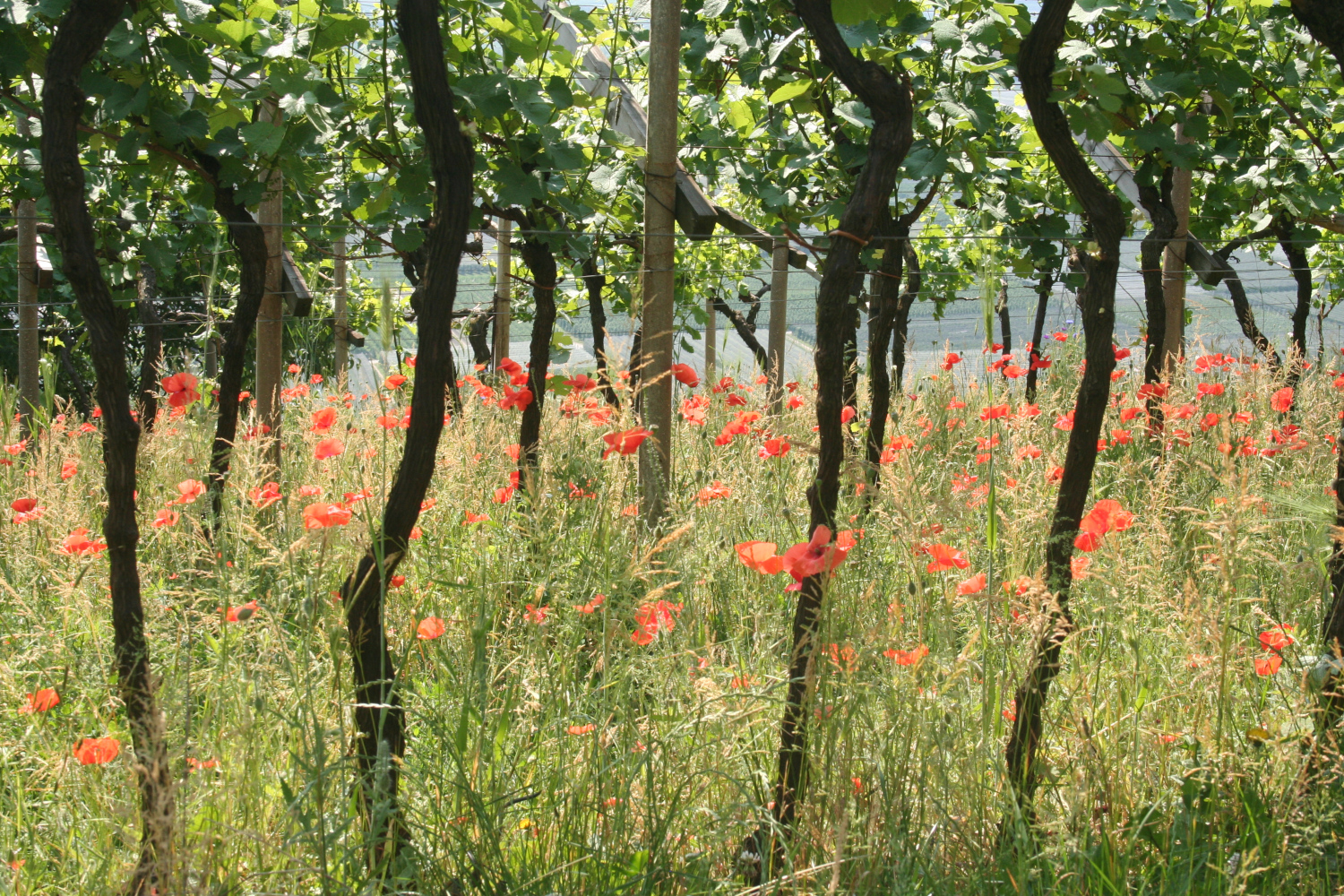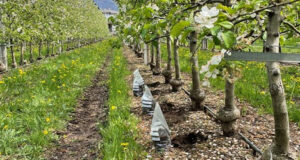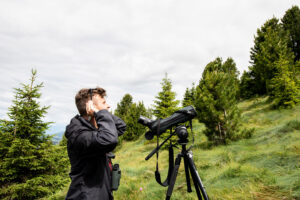Project description and goals: Viticulture plays an important role in the agriculture of South Tyrol. In 2020, there were about 5,500 hectares of vineyards throughout South Tyrol (Autonomous Province of Bolzano Alto Adige, 2021). In this country, vineyards occur in the lower and more heat-exposed valley slopes between Merano and Salorno, in Valle Isarco and in Val Venosta. In vineyards we find a heat-loving flora and fauna. The Biodiversity Monitoring South Tyrol wants to find out, among other things, which plant and animal species are characteristic of vineyards. For this purpose, vineyards distributed all over the country are examined according to a standardized methodology. Based on this data, a diploma thesis will analyze how vineyard flora and fauna differ from those of other habitats in the cultural landscape (orchards, fields, settlement areas) and whether there are special animal and plant species in South Tyrol’s vineyards that occur mainly or exclusively here. Possible flagship species will be selected and presented among these “character species”, i.e. species that on the one hand stand for close-to-nature viticulture and on the other hand are particularly suitable for communication due to their attractiveness. Finally, methods will be developed to incorporate vineyards and their ecology into school lessons.
Methods: For the project, the collected data from BMS will be analyzed in more detail: First, species numbers and diversity indices are compared with those of other valley habitats (orchards, fields, settlement areas, oak woodlands, meadows, dry grasslands). Within the vineyards we analyze the effect of slope and other ecological parameters. Furthermore, different analyses are carried out to name vineyard character species. From these species, ten that fulfill all criteria for a flagship species, will be selected from different animal and plant groups. Fact sheets will be prepared for these species and concepts will be developed on how they can be used for both environmental education and any marketing activities.
Partner: The project is carried out in cooperation with the University of Innsbruck as part of a diploma thesis (supervision Erich Tasser).
Contact: Contacts for further information are Elia Guariento elia.guariento@eurac.edu and diploma student Daniela Weger daniela.weger@student.uibk.ac.at



